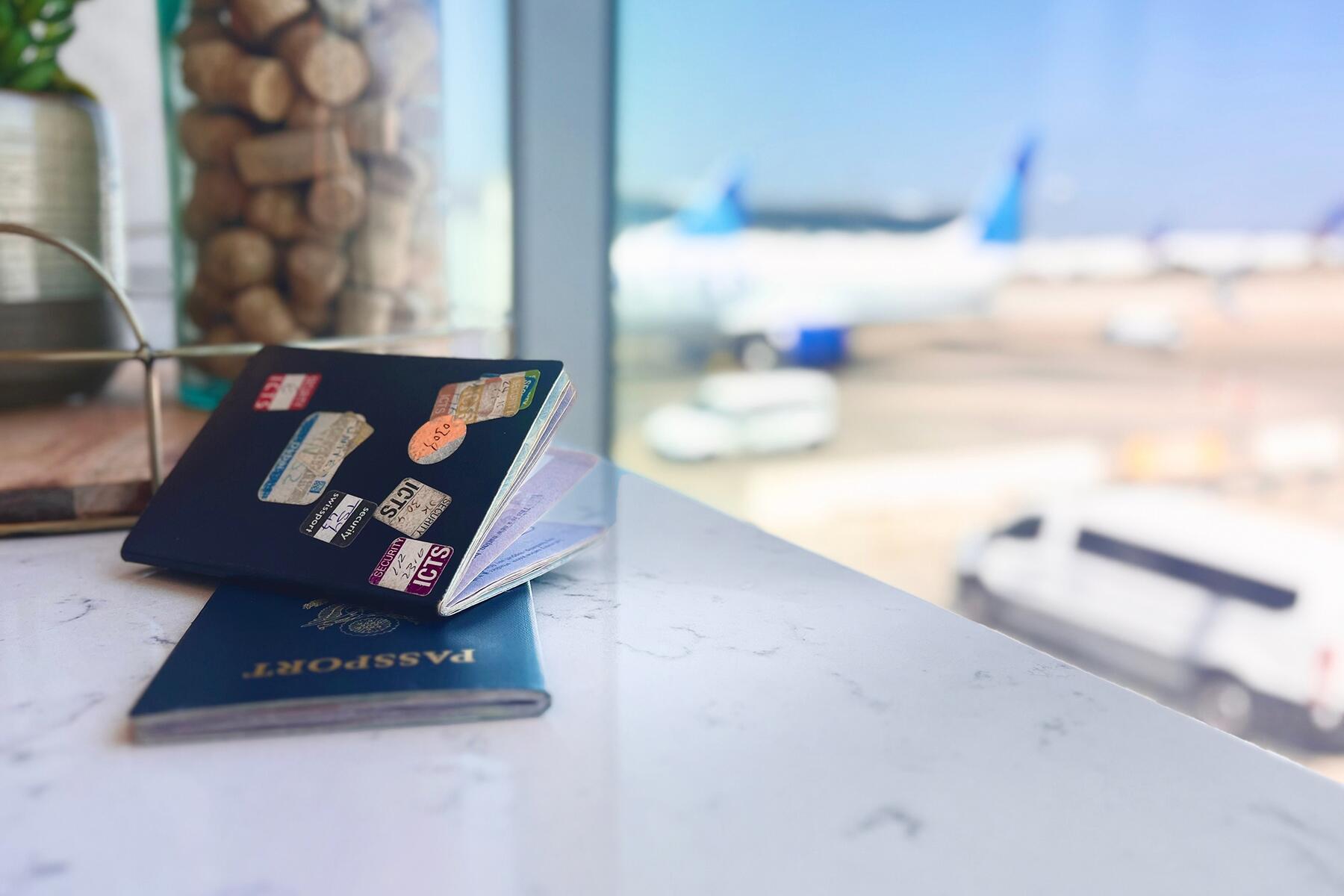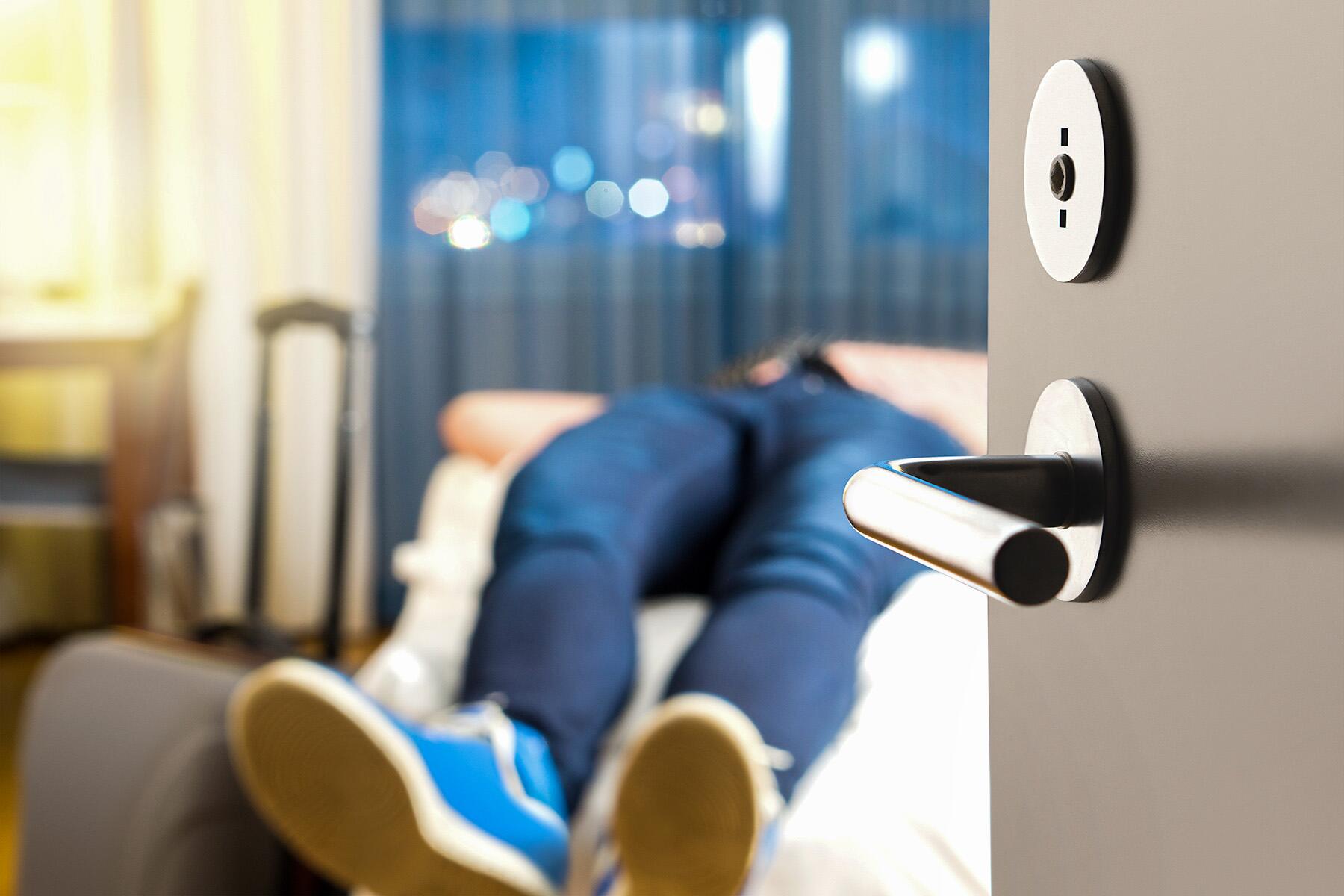How far would you go to work remotely?
“All my work was completed in a timely manner so neither of my bosses ever asked.”
Emily Smith is no stranger to “hush trips.” On her first clandestine getaway, the podcast host escaped to Kelowna, British Columbia, where she finished her work in various coffee shops, wineries, breweries, and even in a car—all with her employer being none the wiser.
On her second trip, this time to the bright lights of Las Vegas, she took meetings poolside and had to toil away in makeshift offices, but despite the constant maneuvering, she says she would take another hush trip “in a heartbeat.”
A hush trip is when a remote worker goes on a vacation without their employer’s knowledge—or perhaps permission. People are embarking on these secret voyages to protect their mental health and in protest of post-pandemic back-to-office mandates and declined vacation requests.
The Appeal of Hush Trips
Hush trips are commonly mislabeled as vacations, but they are working holidays during which a worker still has the same professional requirements as they would while in an office. They may then squeeze in their desired leisure activities into their non-working hours, be it national park visits or preening by the pool.
These knowledge professionals might even be more productive while in a fresh environment. For Marjorie (a Pennsylvania-based remote worker who prefers to remain anonymous), her productivity increased when she started gallivanting covertly. She also got to sample working in a new time zone when she spent four fun months traveling around Europe.
Recommended Fodor’s Video
“Although the time difference had me working during the evenings instead of the typical nine-to-five, I actually preferred my new schedule and it was lovely having the entire day to explore before ‘clocking in’ for work,” says Marjorie.
Nick Mueller, the Director of Operations for HawaiianIslands.com, also enjoyed the thrill of a European “workcation” when he ticked England’s Lake District off his bucket list, a place he described as one of the most beautiful on Earth.
“I came back from my trip happy, refreshed, and grateful for the opportunity to experience such breathtaking natural beauty,” he gushes.
Although his boss never expressly stated that he could not work from abroad, he realized retrospectively that they would not have been on board with his decision.
“It has become clear that taking a week off without informing my employer is not something they would have agreed with,” he reflects.

The Backlash Against Remote Work
Mueller’s company might not have been clear about their stance on his whereabouts but increasingly, firms that fervently embraced remote working during the pandemic are now ushering their employees back into offices.
Amazon employees recently staged a walk-out after the company flipped on its working-from-home policy, requiring them to be in the office three days a week. Apple CEO Tim Cook called remote work “the mother of all experiments” before later announcing a three days per week in-office mandate last year. Those not adhering to the policy—monitored via ID badge swipes—would risk disciplinary action or termination. Starbucks, Disney, and Google have also changed their tunes while Salesforce resorted to incentivizing its staff with a $10 charity donation for every day they came into the office over a two-week period in June.
In recent months, prominent names from the worlds of work and business have also spoken out against remote work, including lifestyle entrepreneur and TV personality Martha Stewart. Comparing the U.S. to France (which she deemed as not particularly prosperous), she stated in an interview with Footwear News that remote work, even partial, would lead to the country’s demise.
“Should America go down the drain because people don’t want to go back to work?” she asked. Twitter owner and Tesla CEO Elon Musk is also staunchly anti-remote work and told CNBC that “people should get off the goddamn moral high horse with the work-from-home bulls***.” On his strict return-to-office policy at Tesla, Musk expressed that spending anything less than 40 hours in the office each week would be tantamount to “phoning it in.”
After tasting the sweet nectar of liberty during the pandemic, it’s little wonder that many desk workers are risking it all in order to hold onto their remote working lifestyles. Why stay in the confines of four walls when you can choose the world? And what’s the harm in taking off and bringing your work with you?
What Happens if You Get Caught Taking a Hush Trip
For PR professional Suzan Gennace, who previously worked for an NYC marketing firm, a squawking seagull during an impromptu conference call with the CEO almost gave away that she had left work early on a Friday for a New Jersey beach. During another hush trip to Rio de Janeiro, a flying plastic table on a windy beach cut her and sheared off all her eyelashes on one eye. The next day, she had to explain the injury when her client requested a video call.
It was non-stop stress that impeded former mental health worker Flavia Cornejo when she took an eight-day hush trip to Egypt after spotting an irresistible deal flying out on a Tuesday.
“I was pretty stressed and was answering calls and emails up until the plane departed and once it landed,” recalls the Peruvian-American, who now runs a travel blog and works for herself. “Even as I was waiting to get my visa into Egypt, I was on the phone with my manager trying to drown out the sounds of Cairo airport.”
The worst-case scenario when taking a hush-hush journey is getting caught and losing your job. This was the fate of Claudia (who chose to remain anonymous due to a non-disclosure agreement). The Texas lawyer wished to keep her job at a top firm while commuting to England once a month to study at Cambridge University but was fired when her bosses found out a year into her program. Losing her job due to the extended study workcation may have hampered her legal career, but things worked out in the end as she now runs a travel company with her husband.
Even if you don’t lose your job, a hush trip could create friction with your employers while you’re still contracted. Tiana Bugyra, an HR manager with a Canadian construction firm, points out that social media and VPNs make it easy to find where people are located.
“Depending on many factors like the role, responsibilities, and even the company’s overall strategy, an employee working abroad while not letting their employer know can be deceitful,” she says.
Bugyra notes that while her company doesn’t have a policy around traveling internationally without permission, they did request that an employee report back to the country after the individual overstayed in South America after a vacation.
“Companies can set a policy against remote work even when laws don’t prevent it,” says Jeff Monahan, a California business attorney with labor and employment law experience.
“Data privacy laws are one reason companies prevent employees from working remotely, especially in certain industries. You won’t see many people in banking, finance, or healthcare working remotely abroad,” he remarks.
Professionals working with sensitive data can run into problems using public Wi-Fi networks. Monahan, who has operated his firm remotely since 2016 and has lived the nomad lifestyle for the last three years, states that taxes are another big reason.
“Employers have to withhold taxes from payroll, and the tax rate depends on where the employee lives. Discreetly working abroad can cause the company to fall out of tax compliance,” he says.
Monahan adds that the undercover voyager could land in taxation hot water themselves. “It can also trigger unexpected tax liability to the employee in the new country, and the employee is probably working illegally without a visa too.”

What to Consider if Taking Hush Trip
So, how can you quietly take your job on the road without falling out of favor or jeopardizing your employment? It’s all in the details.
Kristy Ouellette runs the Mickey Guru Travel Company and has planned three hush trips for clients. For one family’s trip to Walt Disney World, she specifically booked a work-friendly room for the mom, who held her morning leadership meeting with a crucial item in tow.
“She was using her favorite coffee mug that she brought from home so it would look authentic,” Ouellette shares.
Other details that could be dead giveaways include suddenly having a bad connection when your Wi-Fi is usually stellar and having your new “local” time on your laptop (change it to the time zone that you’re meant to be on before a video call in case you have to share your screen).
Fix your video call background, never check in on social media, and perhaps go somewhere within driving distance or a quick flight away if you need to return on short notice. Time your flights around your work hours, and don’t go all the way to Thailand for your first furtive foray. Additionally, close your curtains if it’s bright and early when it’s “supposed to” be evening.
To prevent blowing her cover during her drive to Kelowna from Vancouver, Smith used her cell phone data to hotspot into her computer and claimed she had a coughing fit or was on a bathroom break when there were dead zones.
If you would rather not have to sidestep an organization’s work and travel policy at all, seek out a completely distributed company like Automattic, Buffer, or the nomad insurance provider Safety Wing where nobody ever has to be coy about being in Norway, the Netherlands, or even Vegas.




First, I'm an employee, not an employer, but does anyone else see this article as a tad irresponsible? Seems to be encouraging deception at best. Putting someone's livelihood at risk at worst. Aside from a single mention of three companies which might be open to remote work in the final paragraph, the author's intent, here, seems solely to provide tips and tricks for how to lie to your employer. No matter how exhilarating this may seem, it seems to me that this article is simply glorifying dishonesty, and we could use a lot less of that in our world. My opinion. Thanks!